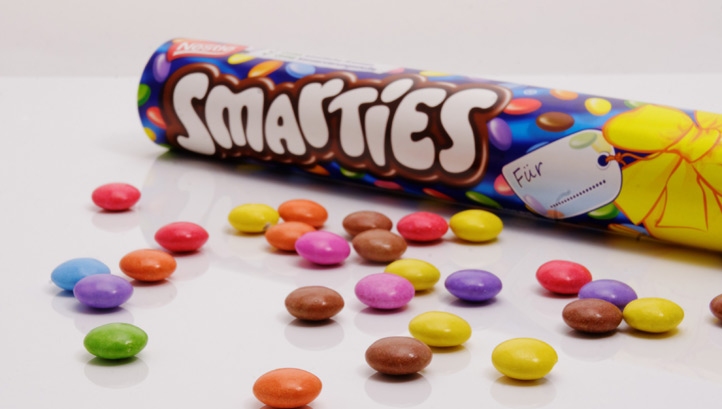Nestlé set to launch its first plastic-free packaging in 2019
Posted on May 1, 2019 by DrRossH in Plastic Waste NewsNestlé set to launch its first plastic-free packaging in 2019
Food and beverage giant Nestlé has published a sweeping string of new sustainable packaging commitments, including plans for its first plastic-free packaging, and achieving ‘plastic-neutrality’.

Nestlé owns more than 2,000 brands, which will all be housed in packaging that is recyclable, reusable or compostable by 2025
The commitments, which will see Nestlé launch its first plastic-free packaging lines by the end of 2019, build on its UK Plastics Pact pledge to ensure 100% of its plastic packaging is recyclable, reusable or compostable by 2025.
Published on Tuesday (15 January), they divide the company’s plastics action plan into three main sections – pioneering alternative materials, creating a waste-free future and driving behaviour change.
Actions to champion alternative materials include launching paper-based pouches and boxes for Nesquik and Smarties by the end of 2019, with similar packaging to be developed for Milo in 2020. Plastic straws will also be removed from all Nestlé products, with the phase-out set to begin in February.
Nestlé has additionally unveiled plans to develop water bottles which are both biodegradable and recyclable but has not yet set a deadline for bringing this innovation to market.
The headline ambition of the ‘creating a waste-free future’ pillar, meanwhile, is achieving ‘plastic-neutrality’, meaning that Nestle will finance the collection of the same amount of plastic pollution as its plastic output. The collected waste will then be sent for recycling.
Lastly, the behaviour change portion of the new strategy focuses on reducing the plastic footprint of Nestlé’s 323,000 employees. It includes a pledge to remove non-recyclable, single-use items from the company’s 4,200 facilities – a move which will be accompanied by a communications campaign aimed at boosting reuse and recycling rates for other items.
“While we are committed to pursuing recycling options where feasible, we know that 100% recyclability is not enough to successfully tackle the plastics waste crisis – we need to push the boundaries and do more,” Nestlé’s chief executive Mark Schneider said.
“We are determined to look at every option to solve this complex challenge and embrace multiple solutions that can have an impact now.”
Turning the tide on plastics
The publication of Nestlé’s new commitments comes shortly after the Swiss multinational announced that it had joined Project STOP, a business-led initiative aiming to prevent plastic pollution from leaking into waterways and oceans across South-East Asia. This move forms part of the company’s ambition to create a waste-free future.
Founded by innovative materials firm Borealis and blockchain developer SYSTEMIQ in 2017, Project STOP was created in a bid to tackle the 12 million tonnes of plastic estimated to be seeping into the marine environment every year.
Of this waste, around half is estimated to originate from five Asian nations – China, Indonesia, the Philippines, Vietnam and Thailand. The project, which has garnered support from the likes of waste management firm Veolia and the Norwegian Government, is, therefore, driving actions to improve waste management infrastructure, plastics policies and business ambition in these markets.
As part of the initiative, Nestle has pledged to apply key learnings from its work in South-East Asia to its other markets before the end of 2019, as part of its bid to become ‘plastic-neutral’.
“It’s extremely concerning that the lack of sustainable waste management systems and practices have contributed to the escalation of the problem of marine litter,” Borealis’s chief executive Alfred Stern said.
“We are excited to welcome Nestle as a new strategic partner of Project STOP and look forward to new partners and alliances on our journey to scale up this initiative.”

 How many people today grab a takeaway coffee cup from the local cafe to drink on the go? We don’t know, but the number must be enormous.. Most every one of the above have a plastic top that will last 100s of years. Some cafes still use plastic cups that last a similar time. Is 10 minutes of coffee worth 100s of years of trash?
These items can be seen littering our gutters and on our streets all over the place. If they were all cardboard, they would still be littered, but they would, at least, be gone in a short time.
They do not need to be made of plastic.
How many people today grab a takeaway coffee cup from the local cafe to drink on the go? We don’t know, but the number must be enormous.. Most every one of the above have a plastic top that will last 100s of years. Some cafes still use plastic cups that last a similar time. Is 10 minutes of coffee worth 100s of years of trash?
These items can be seen littering our gutters and on our streets all over the place. If they were all cardboard, they would still be littered, but they would, at least, be gone in a short time.
They do not need to be made of plastic.
 On the way home from the gym last week, a distance of about 1 km (1/2 mile), I counted the items of plastic litter on the curb as I walked. In that short distance I counted 63 pieces of plastic litter. Plastic drink bottles, bottle tops, candy wrappers, plastic film, polystyrene fragments etc. That seemed to be a lot to me. I guess it is a generational thing. Our parents would have been horrified to see that amount, whereas it seems to go unnoticed by our youth of today. In another 20 years how many pieces will there be on this stretch, -- 200? What will today’s youth think of that new amount then when they are older? Will their children be so readily accepting of a higher amount of litter?
On the way home from the gym last week, a distance of about 1 km (1/2 mile), I counted the items of plastic litter on the curb as I walked. In that short distance I counted 63 pieces of plastic litter. Plastic drink bottles, bottle tops, candy wrappers, plastic film, polystyrene fragments etc. That seemed to be a lot to me. I guess it is a generational thing. Our parents would have been horrified to see that amount, whereas it seems to go unnoticed by our youth of today. In another 20 years how many pieces will there be on this stretch, -- 200? What will today’s youth think of that new amount then when they are older? Will their children be so readily accepting of a higher amount of litter?
Discussion · No Comments
There are no responses to "Nestlé set to launch its first plastic-free packaging in 2019". Comments are closed for this post.Oops! Sorry, comments are closed at this time. Please try again later.